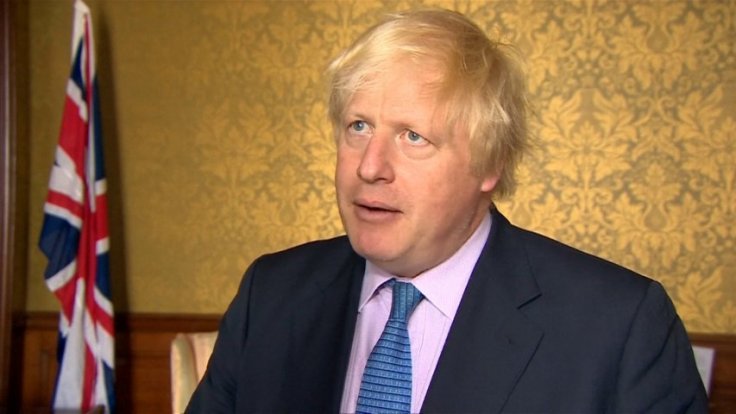
Boris Johnson, frontrunner to be Britain's next prime minister, denied he was responsible for the resignation of the ambassador to Washington but admitted his comments had been a factor in the shock departure of one of the country's most senior diplomats.
The former London mayor has been heavily criticized by lawmakers in his own party and the opposition for failing to defend Kim Darroch after Donald Trump attacked the envoy for leaked remarks describing the U.S. administration as inept.
Darroch resigned after days of scathing criticism from the U.S. president on Twitter. A diplomatic source told Reuters that the lack of support from Johnson during a televised debate with his rival for the premiership, foreign minister Jeremy Hunt, had also been a factor.
Johnson said Darroch had not watched the debate but had heard an inaccurate account of what was said. He said he had not defended the ambassador more because he did not think civil servants should be dragged into political disputes.
"(Darroch) said that what somebody had relayed to him had certainly been a factor in his resignation," he told BBC television in a testy interview. "I think unfortunately what I said on that TV debate was misrepresented to Kim."
Johnson pointedly refused to back Darroch during the televised debate on Tuesday, leading to accusations from fellow Conservative Party lawmakers that he had thrown the ambassador "under the bus" in order to bolster his own ties with Trump.
At one point he also goaded Hunt, asking how long he would keep Darroch in place after vowing to retain him.
Asked in Friday's interview if he would be "as craven" a prime minister as he has been a candidate, Johnson said: "We have been very forthright with the United States of America and I will continue to be forthright."
BUMBLING PERSONA
Johnson and Hunt are locked in a battle to succeed Theresa May, who resigned as prime minister after failing three times to get parliamentary approval for a withdrawal deal for Britain's exit from the European Union.
Whoever takes over will have the job not only of trying to steer Britain out of the EU by the next deadline, Oct. 31, but dealing with a raft of challenges from an unpredictable U.S. president to mounting tensions with Iran.
Known for his often bumbling persona, which some find refreshing and others call clownish or a calculated political tactic, Johnson's career has been marked by a series of gaffes. But the former foreign secretary says he is the right person to set the country on a new course outside of the EU.
Johnson has said the deal that May agreed with Brussels is now dead and that if he cannot renegotiate a new pact by the end of October, he will embark on a disorderly no-deal departure, the nightmare scenario for many business leaders and the dream of hardline supporters of Brexit who want a decisive split.
The EU has repeatedly said it will not renegotiate the deal.
Pressed on Friday as to why the EU would agree to change aspects of the deal, including the so-called Irish backstop, Johnson struggled to respond beyond saying there is a new mood among leaders on the continent to reach a deal.
The backstop, an insurance policy to keep the border open between the British province and Ireland after Britain leaves the EU, has proven the most contentious element of divorce negotiations between London and the bloc.
"What has changed now is that there is a different approach to the negotiations, a new optimism about what we can do, a new spirit of determination to come properly out of the EU and to get a fantastic deal," Johnson said.
"Why can't we rely on the common sense and goodwill of both parties to get this done?"
Johnson also admitted that he did not know all the rules around one of his key ideas that Britain could negotiate a standstill agreement to prevent trade tariffs with the EU if it left with no deal.
The new prime minister will be named on July 23 and take office the following day.









